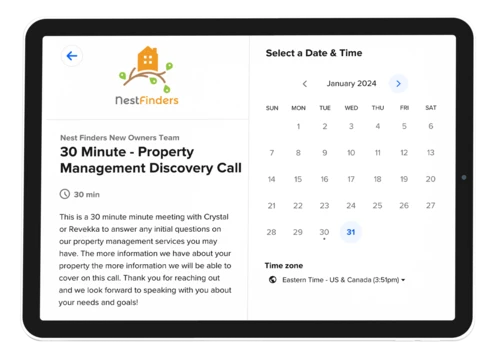
Owning a rental property in Florida can be a lucrative business. However, being a self-managing landlord doesn’t come without some struggles. One of the biggest challenges a landlord can encounter is having to deal with a bad tenant.
To prevent themself from having to evict a tenant, landlords can screen prospective tenants before letting them sign a lease or rental agreement. A thorough tenant screening process is important to prevent problematic renters from living on your property.
Even with proper tenant screening and a clear rental agreement in place, some tenants may fail to abide by the terms of the rental agreement or stay accountable for their responsibilities. When a tenant violates the agreement or becomes problematic, it can become a significant issue that will affect your bottom line and ROI.
When this happens, a landlord may be left with no other choice but to have to evict tenant. However, if you don’t follow the legal eviction process, you may suffer from paying extensive attorney fees, financial loss and legal issues. That’s why it’s crucial to be familiar with the laws in your state so you can follow the eviction process in full accordance with Florida law.
If you’re wondering how long the Florida eviction process take or how to evict a tenant in Florida, continue reading this expert guide on eviction laws in Florida!
The Florida Eviction Process
In Florida, an eviction can take around two to three weeks from start to finish. This timeframe may vary depending on the reason for eviction.

An eviction may take longer if your tenant choose to contest the eviction complaint against them.
Notice for Lease Termination with Legal Cause
Florida landlords are not allowed to evict a tenant without legal cause. Some legal grounds for evictions in Florida include:
- The tenant fails to make rent payments on time or in full.
- Staying on the property without a lease agreement or after the agreement ends.
- Violating the terms of the lease agreement.
- Engaging in illegal activity.
In Florida, rent is considered late the day immediately after its due date, unless otherwise stated in the lease. A Florida landlord can evict a renter for failing to pay on time.
If rent is late, landlords can serve their tenant a 3-day notice to pay the rent or vacate the rental unit. If the tenant neglects to pay their dues after three days or refuses to leave the leased premises, the landlord may begin the Florida eviction process.
Tenants who choose to live in the rental without a lease or after the lease term has ended can also be legally evicted. Landlords are required to provide up to 15 days' notice for the tenant to move out. After the expiry of this notice, the landlord can proceed with the eviction if the tenant refuse to vacate the property.

If a tenant violate the terms of their lease agreement or Florida Landlord-Tenant law, landlords can also file a Florida eviction lawsuit against them. Regardless of the violation, the landlord must provide 7 days' notice before filing for an eviction in Florida.
There are some violations that can be fixed so tenants can avoid being evicted. These breaches of the lease include having an unauthorized pet, subletter, or vehicle, parking in unauthorized areas, and causing cleanliness or sanitary issues.
However, landlords don’t have to give a second chance to a evict tenants who repeat a curable offence within 12 months.
Serving Florida Eviction Notices
Per Florida eviction law, the eviction process begins when landlords provide tenants with written notice. Per Florida regulations, the proper notice can be delivered personally to the tenant or sent by registered or certified mail. Landlords may also opt to leave this written notice in a conspicuous place on the rental property such as the front door.
The duration of the notice depends on the reason for eviction and the tenant’s rent payment frequency.
Three Day Notice
For non-payment of rent excluding weekends and holidays.
Seven Day Notice
For violations of lease terms or landlord-tenant law. Landlords can give 7 days’ notice to fix a curable issue or vacate the premises.
Fifteen Day Notice
For a tenant with no lease or those that remain at the property at the end of a month-to-month lease.

For a tenant who continue to pay rent after the lease ends, a landlord would serve notice as follows:
- 7-day notice: for week-to-week rent payment frequency
- 30-day notice: for quarter-to-quarter rent payment frequency
- 60-day notice: for year-to-year rent payment frequency
Tenant Eviction Defenses in Florida
Legal defense is presented by tenants who believe they are being wrongfully evicted. For instance, a tenant may claim that:
- The landlord tried to force eviction by removing the tenants’ belongings, changing the locks, or shutting off utilities before taking proper legal action.
- The tenant fixed a minor violation and the landlord continued with the eviction.
- The eviction is due to discrimination against the tenant.
- The eviction is retaliatory.
- No actual lease violation happened during the tenancy.
- The landlord failed to maintain or repair the rental unit after being notified of issues by the tenant during the tenancy.
- There are substantial errors in the notice or complaint, like a missing eviction effective date
Attending Court Hearing in Florida
A tenant is given five business days to respond to a complaint filed by their landlord. If the tenant chooses not to contest the eviction case, the landlord can file a default motion judgment to obtain a Judgment for Possession.
The Court Clerk may require the tenant to pay any outstanding rent and any rent due prior to the end of the eviction lawsuit if they contest the eviction.

Both the landlord and their tenant are required to appear in court during an eviction lawsuit. If the tenant doesn’t show up for the court hearing, the court will automatically rule in favor of the landlord through a default judgement.
Writ of Possession
If the court rules in favor of the landlord, the court will issue a writ of possession and the eviction process in Florida will continue. It can take five or more days for a judge in the court to rule on the eviction and issue a writ of possession.
The Eviction
After the writ of possession is issued, the county sheriff will give the tenant 24 hours to leave the property. If the tenant does not move out voluntarily, the sheriff will execute the writ and forcibly remove them. If the tenant leaves any of their belongings at the property, they may be used as payment or lien for damages.
Conclusion
If you don’t want to deal with a problematic tenant, security deposits, applying for a default judgement, or Florida evictions, it’s best to hire a property management firm to handle rent collection and other tenant-related issues. An experienced property management company in Florida can even help you with the eviction process if the situation calls for it!
For your Jacksonville property management needs, contact the expert property managers at Nest Finders Property Management at (904) 565-9040.
Disclaimer: Note that this blog should not be used as a substitute for legal advice or information from a licensed attorney in Florida. Laws frequently change, and this post might not be updated at the time of your reading.



